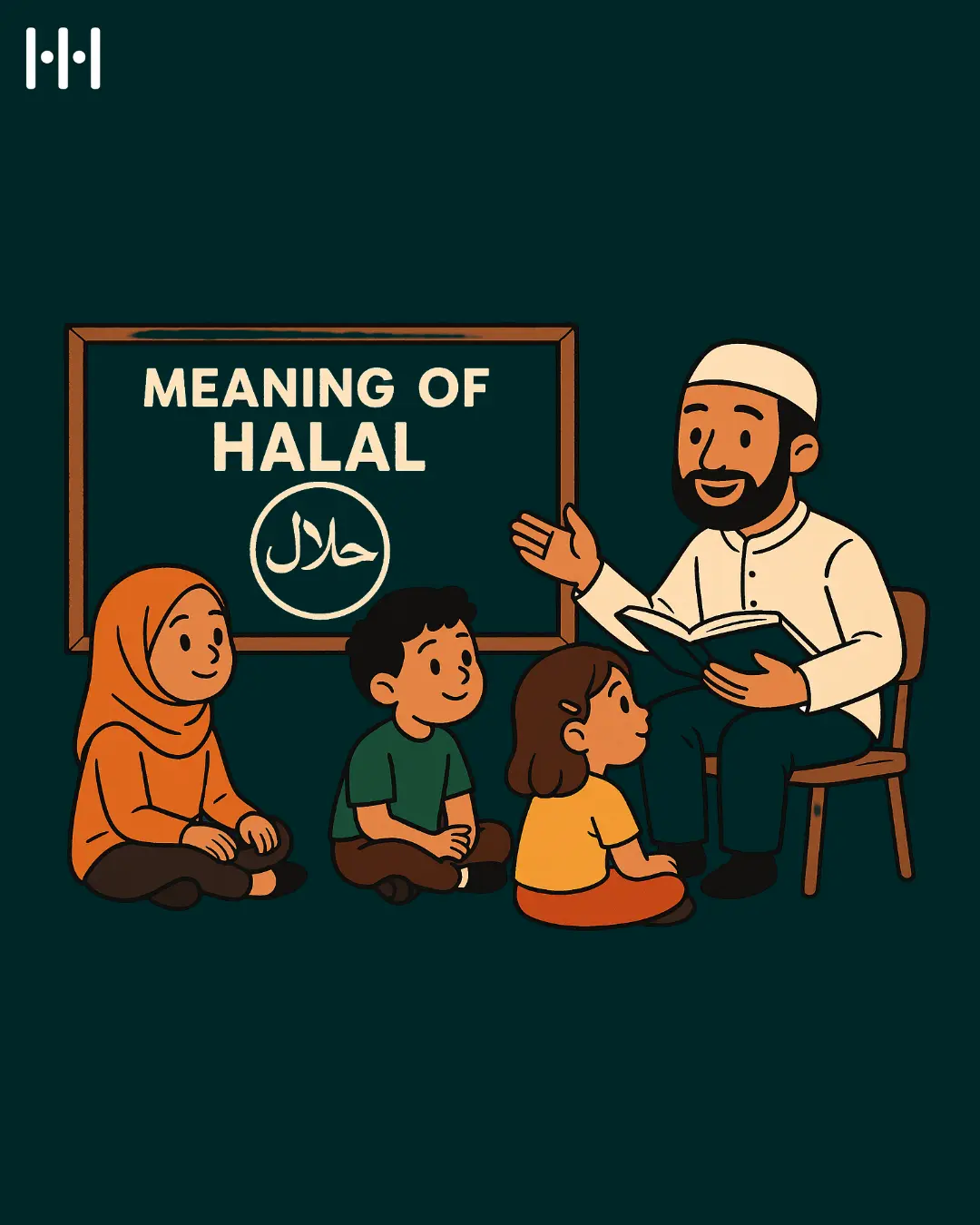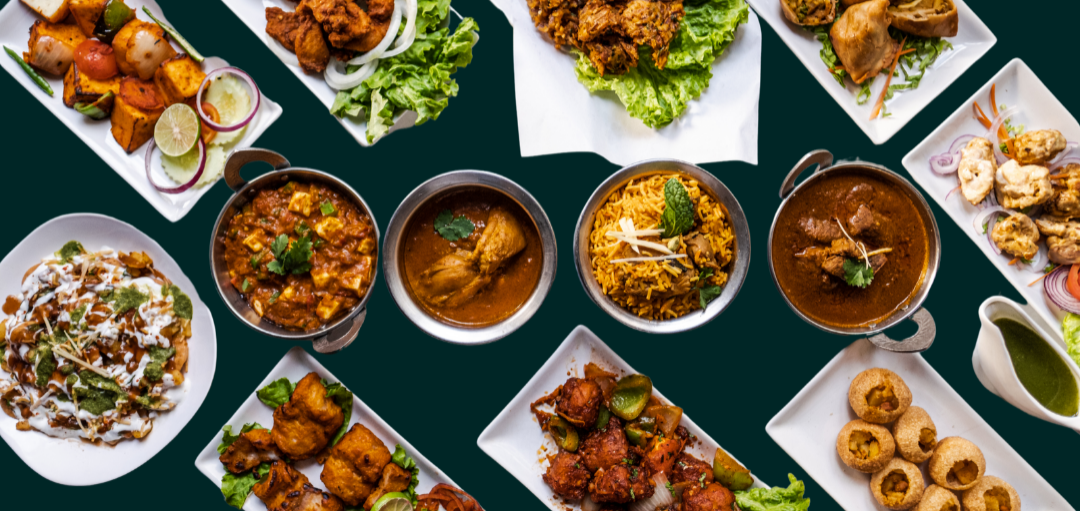In today’s globalised world, the term Halal is becoming increasingly common. You might have seen it on food packaging, in restaurants, or even in beauty products. But what does Halal mean? And why is it important to understand?
Halal is more than just a dietary guideline, it’s a way of life that encompasses ethical, spiritual, and health-conscious choices. Whether you’re looking to deepen your understanding or curious about this growing global phenomenon, this blog will give a clear understanding of what Halal is, why it matters, and how it applies to various aspects of life.
What is the Meaning of Halal and Why is It Important?
The word Halal (حلال) is an Arabic term that means permissible or lawful according to Islamic teachings. It is the opposite of Haram (حرام), which means forbidden. The concept of halal is derived from the Quran and the teachings of Prophet Muhammad (peace be upon him). In Islam, every action, product, or behaviour falls into one of these categories:
- Halal (Permissible) – Allowed according to Islamic law.
- Haram (Forbidden) – Strictly prohibited.
- Makruh (Discouraged) – Not sinful but better to avoid.
- Mubah (Neutral) – Neither rewarded nor sinful.
- Mustahabb (Recommended) – Encouraged and rewarded.
For Muslims, following halal guidelines is a fundamental part of their faith. It applies not only to food but also to cosmetics, clothing, business dealings, and even lifestyle choices

Where Did Halal Come From?
Halal food guidelines come from three main sources:
The Qur'an
It provides clear rules about what is allowed (halal) and forbidden (haram).

Hadiths
These are stories and teachings from the life of the Prophet Muhammad.

Islamic Scholars
They use their knowledge of the Qur'an and hadiths to make decisions about what is considered halal.

In recent years, the global halal market has expanded dramatically, with an estimated worth of over $2 trillion and growing. This expansion reflects not only the increasing Muslim population worldwide but also a growing interest from non-Muslims who recognise halal products for their quality, ethical standards, and health benefits.
Difference Between Halal and Haram
To fully grasp the concept of halal, it's important to understand its opposite, haram which means forbidden. Let’s understand clearly what is permissible and what is prohibited:
Halal
- Permissible or lawful items
- Non-toxic or safe items which are beneficial for health
- Hygienic, nutritious and safe for living
- Extra purity in items, ensuring it is pure, ethical and high-quality
- Must be free from contamination with forbidden substances
Haram
- Forbidden or unlawful items
- Toxic that is often harmful and can cause diseases
- Unhygienic and can cause stress or harm
- Not outright forbidden but disliked, best to avoid as it is Makruh
- Contaminated with impurities like manure, urine, or infectious fluids
Note: Sometimes, it’s not clear whether something is halal or haram. This is referred to as mashbooh or doubtful. In such cases, Muslims are encouraged to seek clarification or avoid the product or practice altogether.
What Makes Food Halal?
For food to be halal, it must meet the following conditions:

Meat Slaughtered Animals
For meat to be considered halal, it must come from herbivorous animals that are slaughtered according to below guidelines:
- Herbivorous animals like cattle, sheep, goats, chickens, ducks, and game birds.
- The animal must be healthy and alive before slaughter.
- The slaughter must be performed by a Muslim
- The name of Allah must be pronounced before slaughter
- The blood must be completely drained from the body.
- The method must ensure the animal's swift death with minimal suffering
- The animal should be treated respectfully and provided with water before slaughter
Seafood
Seafood is generally considered halal, but there are some differences in opinion among Islamic scholars:
- Fish with scales are halal. This includes fish like salmon, tuna, and cod.
- There is some debate about shellfish (e.g., shrimp, crab, lobster). The Hanafi school of thought considers them makruh, while other schools like Shafi'i, Maliki, and Hanbali consider them halal.
- Any seafood that is poisonous or harmful to consume is considered haram.
Plant-Based Foods
Plant-based foods are generally halal, but there are some considerations:
- All fruits, vegetables, grains, and legumes are halal by default
- All ingredients must be halal-compliant, meaning they should not contain any prohibited substances like pork or alcohol.
- The food must not be contaminated with non-halal ingredients during any stage of its manufacturing or processing.
- Any animal-derived ingredients used in plant-based foods, such as enzymes or flavourings, must come from halal sources.
Dairy and eggs
Milk, cheese, yoghurt, and eggs from halal animals are considered halal if they meet certain criteria:
- Halal dairy products must come from animals that are milked using traditional methods, not machines. This includes milk, yoghurt, and cheese.
- Eggs from lawful animals (e.g., chickens, ducks) are considered halal. Eggs from impermissible animals (e.g., birds of prey) are haram.
- The diet and treatment of the birds producing the eggs are also important. Birds fed an all-vegetable diet produce halal eggs.
What Makes Food Haram?
In Islam, certain foods and drinks are considered haram, meaning they are forbidden. Here are the main categories of haram foods:
- The consumption of pork and its by-products (e.g., bacon, ham, gelatin, lard) is strictly prohibited in Islam.
- Carnivorous animals, birds of prey, scavengers, and animals that are sick, dying, natural causes or improperly slaughtered are forbidden.
- Consuming blood or food products containing blood is forbidden.
- Animals or poultry sacrificed for practices like voodoo or witchcraft, which deny the existence of the Creator, are not to be consumed.
- Any form of intoxicant, including alcoholic beverages, narcotic drugs, and recreational drugs, is haram.
- Meat from animals that were not slaughtered in the name of Allah.
- Any food that is harmful or poisonous to consume is considered haram.
- Foods contaminated with impurities like manure, urine, rodent droppings, infectious fluids, or pus are considered haram.
What are Other Halal Things Beyond Food?
Halal certification extends beyond food and beverages to include a variety of products that comply with Islamic laws and ethical standards. Here are some categories of halal-certified products beyond food:

Halal Finance and Banking
Islamic finance follows Shariah-compliant rules, which include:
- No interest (riba) on loans.
- No investments in haram industries (e.g., alcohol, gambling, pornography).
- Profit-sharing and ethical business practices.
Cosmetics and Personal Care
Halal cosmetics are manufactured using ingredients permissible under Islamic law. This includes:
- Many conventional cosmetics contain ethyl alcohol, which is prohibited in Islam.
- Ingredients like pork-derived collagen or gelatin are avoided.
- The production process must comply with halal standards, ensuring cleanliness and ethical treatment.
- Natural and plant-based toiletries
- Halal-certified makeup, skincare, and hair care products
- Natural and plant-based toiletries
Pharmaceuticals and Supplements
Halal pharmaceuticals and supplements are free from non-halal ingredients and are manufactured according to halal guidelines. This includes:
- Gelatin used in capsules must be derived from halal sources.
- Medications and supplements must not contain alcohol.
Fashion and Textiles
Halal fashion includes clothing and textiles that are produced in accordance with Islamic principles. This includes:
- Fabrics must not contain any non-halal animal-derived materials.
- The manufacturing process must ensure the ethical treatment of workers and animals.
Non-Consumables
Many non-consumable products, such as industrial oils and lubricants, can also be halal-certified. This ensures that:
- They do not contain any non-halal animal-derived components.
- The manufacturing process adheres to halal standards.
Services
Some services can also be halal-certified, ensuring they comply with Islamic principles. This includes:
- Earning money through honest means. Avoiding haram entertainment, such as gambling or explicit content.
Tour and Travels
Here are major points that make halal tours and travels principles. This includes:
- Hotels and resorts should serve halal-certified food and avoid alcohol in rooms and dining areas.
- Gender-segregated swimming pools and spa facilities (if offered).
- Buffets should ensure no cross-contamination with non-halal items.
- Avoid supporting businesses involved in unethical practices (e.g., exploitation, interest-based transactions).
How to Identify Halal Products?
When shopping, look for these indicators to ensure a product is halal:
- Halal Certification Logos, different countries have their own halal certification bodies.
- Check for hidden haram ingredients, such as: E-numbers (some food additives are derived from pork or alcohol), gelatin, flavourings and emulsifiers (may contain animal-based ingredients).
- If unsure, ask the manufacturer or check online halal certification databases.
What is Halal Certification?
Halal certification is a process by which a qualified Islamic organisation inspects and verifies that a product meets all halal requirements. Upon successful verification, the organisation issues a halal certificate and allows the use of its halal logo on packaging.
The Certification Process Typically Involves:
- Application: The company submits detailed information about ingredients, processes, and facilities
- Document review: Certification bodies examine all ingredients and their sources
- Site inspection: Physical examination of production facilities
- Laboratory testing: When necessary, to detect haram substances
- Certification: Issuance of halal certificate if all requirements are met
- Monitoring: Regular follow-up inspections to ensure continued compliance
Why Certification Matters?
Certification provides assurance that products comply with religious requirements. For businesses, it opens access to the growing halal market segment. For regulators, it helps prevent fraudulent claims and ensures consumer protection. It's worth noting that halal certification standards can vary between different organisations and countries.
Halal is more than just food, it’s a way of life that promotes ethical, religious, and healthy living. With the increasing demand for halal products and services, understanding halal is becoming more important for Muslims and non-Muslims alike. Whether you are a business owner, no traveller, or simply curious about halal, knowing its principles can help you make informed choices.
At Halal Hub, we are committed to providing you with reliable and comprehensive information about halal. From food and lifestyle to business and finance, we’ve got you covered. Join our community today and stay updated with the latest insights, tips, and trends in the world of halal.
FAQs on What is Halal?
While meat is a significant part of Halal, the concept applies to all aspects of life, including business, clothing, and lifestyle choices.
Anyone can consume halal food, and many non-Muslims choose halal products for their perceived quality, ethical standards, or health benefits. In diverse societies, halal options help ensure inclusivity for everyone.
No, halal slaughter is designed to be as humane as possible, ensuring the animal feels minimal pain. Modern research has shown that, when performed properly, this method can cause minimal suffering comparable to or less than some conventional stunning methods.
No, while pork prohibition is well-known, halal encompasses much more. It's a comprehensive approach to consumption and living that includes how animals are raised and slaughtered, how businesses operate ethically, and even extends to personal care products, pharmaceuticals, and financial transactions.
Halal is an Arabic word that means permissible or lawful. In the context of food and other products, it refers to items that are allowed under Islamic law.
Food is considered halal if it adheres to Islamic dietary laws. This includes meat from animals that are properly slaughtered, seafood, plant-based foods, and dairy products that do not contain any forbidden ingredients.
Pork is not halal because it is explicitly prohibited in the Quran. Pigs are considered unclean, and consuming pork is harmful to health. Its strictly forbidden eating pork or its by-products, making it haram.
Pork is not halal because it is explicitly prohibited in the Quran. Pigs are considered unclean, and consuming pork is harmful to health. Its strictly forbidden eating pork or its by-products, making it haram.
Most seafood is considered halal, but there are some differences in opinion among Islamic scholars. Generally, fish with scales are universally accepted as halal, while shellfish may be debated.
Yes, plant-based foods are generally halal as long as they do not contain any forbidden substances like alcohol or pork derivatives.
No, Muslims are prohibited from consuming alcohol. It is considered haram (forbidden) because it is an intoxicant.
Halal cosmetics are products that do not contain any forbidden ingredients like alcohol or pork derivatives and are manufactured according to Islamic guidelines.
Dairy products are halal if they come from animals that are milked using traditional methods and do not contain any non-halal additives or ingredients.
Yes, halal food can be consumed by anyone. It is prepared according to Islamic guidelines, but it is safe and permissible for non-Muslims to eat as well.
Halal certification is a process that verifies that a product meets Islamic dietary laws. Certified products usually carry a halal logo, indicating they are permissible for Muslims to consume.
Common halal foods include fruits, vegetables, grains, fish, and meat from properly slaughtered animals. Many everyday foods like bread, pasta, and rice are also halal.